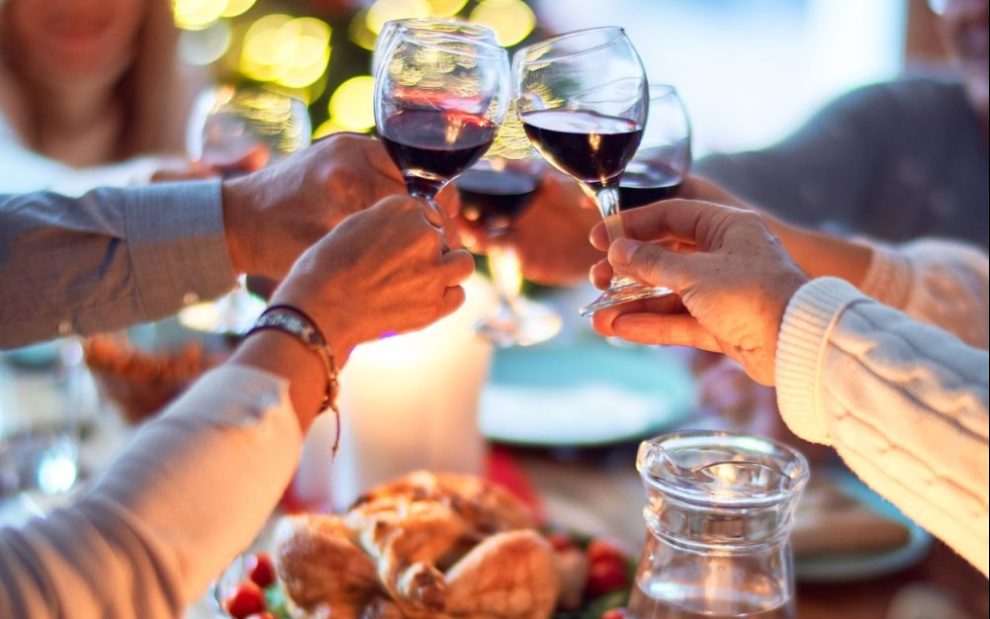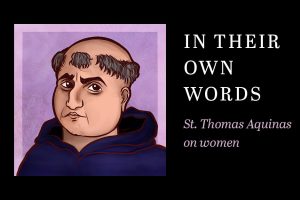This column missed its deadline. This doesn’t affect the experience you’re having in any way, since it went to press on time as usual. But permit me to brag: In the two decades I’ve been writing for U.S. Catholic, the times I’ve not made the deadline have been rare.
The reason I was late getting the column out is both simple and strange. I had company. Company! Unexpectedly, friends from out of state drove through my town and texted to see if they could stay overnight. Heck, I said, stay for days! So they did.
In the before-world—before the dreaded era heralded by February 2020—people coming to stay or dropping in unexpectedly was common. There were such things as guests and impromptu dinner plans back then. In the past two years, however, guests became nearly extinct. One might say virtually so. Many of us didn’t have people in our homes at the drop of a hat. Or perhaps at all. We had established bubbles of five or 10 relatives or friends, depending on the regulations of our state and the gravity with which we embraced them. As pandemic statistics rose like mountains, we adjusted our communities smaller and smaller. The world, once so big and exciting, shrank to the point of strangulation.
For much of 2020, I saw exactly two people regularly: a colleague with whom I do projects and a friend with whom I went walking in the mornings. My walking buddy, a nervous sort with a medically compromised husband, insisted we remain physically distanced and appropriately masked even though we were in the open air the whole time. We exchanged no embraces or so much as a touch the entire year. I was deeply grateful to see her each morning. And I missed the lower half of her face tremendously.
We all found ways to deal with the deprivation of normal gathering. We Zoomed. We attended Masses in parking lots, spiritually marooned in separate cars. We called to strangers from apartment balconies. We got very good at emoting with our eyebrows, hands, muddied masked voices, and body language. We stayed upbeat, cheering each other on and supporting all necessary cautions. We tried not to judge folks who took protocols to hysterical extremes or not seriously enough.
Yet it was difficult, often depressing, sometimes impossible, to face another day without faces. Many of us remain clear-eyed now about the uncertainty of the future into which we’re moving: that dark tunnel of unknowing from which we will emerge. The sterile realm of communal deprivation could claim us again as dramatically as before in another season or with another variant. I don’t want to speculate under what conditions we may be living as you read these words. May God preserve and protect the health of our planet, whatever part of it you occupy!
So imagine my joy when I got the unanticipated text from two out-of-state friends who were in a car driving in the direction of my house. I’d been vaccinated for half a year. They’d had their shots too. They’d waited two weeks for the vaccine to gel, then got in the car—and kept on driving. They hadn’t been home for three months. They didn’t want to go home. They wanted to rejoin and reclaim the world.
That’s what a church is: a society of believers who choose to gather together.
Advertisement
When they arrived at my door, I embraced them. Arms around bodies, warm and invigorating! They didn’t want to lug in their bags; they wanted to sit and talk immediately. So we did, for hours until darkness settled on the neighborhood. I served a lavish meal I’d spent the day preparing: quinoa salad, gazpacho, baked salmon in little tinfoil packets smothered in garlic and herbs, a bottle of wine I couldn’t afford but bought and poured anyway. I’d even baked cookies for dessert. It felt like Christmas, Thanksgiving, and everybody’s birthday at once. We drank in each other’s smiles. Every time someone got up to leave the room, we hugged again. Miraculous!
Even while this glorious, spontaneous visit with friends was happening, I found myself squirreling it away in my heart like a memory. I wanted to remember how this feels: loving people up close, talking to faces without a screen and many miles between us. I wanted to keep fresh the wonder of people around the table, conversation bubbling up and spilling over in unpredictable directions, preparing and sharing food like it’s a holiday even though it’s in the middle of an ordinary week when there’s nothing on the calendar to commemorate. It seemed very important to hold on to the remarkable beauty and privilege of being together, of offering a plate, a hand, a hug, an expressed thought to a live person. It felt like a holy thing to celebrate the act of gathering, the rite of assembly, the pleasure of community—in short, to be fully alive.
It seems we aren’t simply homo sapiens (thinkers) after all. Please excuse what must be rotten Latin, but you and I are more like homo colligentes: folks who gather. We could also use the term qui ecclesiam, Latin slang for “them who church.” That’s what church is: a society of believers who choose to gather together. That’s why we have a hundred different versions of gathering songs to start the Mass. It’s what we do.
So I hope and pray that you and I are gathering around Thanksgiving tables this month and Christmas trees next month. I hope we continue to assemble around altars and sing glorias every Sunday we get the chance. Let’s encircle snow-folk sculpted in parks while we belt out carols we all know by heart. Wouldn’t it be a miracle if we could pop bottles of champagne on New Year’s Eve in crowded places and do what human beings are meant to do: share the experience of life? Participating in the lives of loved ones and strangers makes us whole, heals, revives, and encourages us. May God bless us with the savor-worthy experiences of talking, laughing, arguing, and agreeing—all within the same conversation and the same room.
Maybe the dark tunnel of the unknowable future won’t emerge on that hoped-for reality this year. Maybe it will. Maybe we have to travel further down this road to arrive at that blessed and beautiful place. However life winds and bends, let’s pledge right now not to forget the glorious privilege of being together. Any time we can share a table with friends or strangers, we should put out the best plates. Any time we can smile at a fellow human being with our whole face, by God let’s do it. If a church is open and Eucharist is happening, don’t miss out on the thrill of adding your Amen to a multitude of voices or doing the one thing you can never do on a live Zoom: sing in unison with other people.
Thanksgiving this year might look the same as it traditionally does or still different in ways that rankle. But the new tradition we simply must bring to the feast from now on is real, honest, and deep-welled gratitude. Say thank you to the cook and to the carver, to the person on your left and on your right. Say a prayer for the farmer and for the supermarket cashier who bagged all the ingredients. And be grateful to the God who makes all things possible and every gathering at table memorable.
This article also appears in the November 2021 issue of U.S. Catholic (Vol. 86, No. 11, pages 47-49). Click here to subscribe to the magazine.
Image: Unsplash/KrakenImages















Add comment